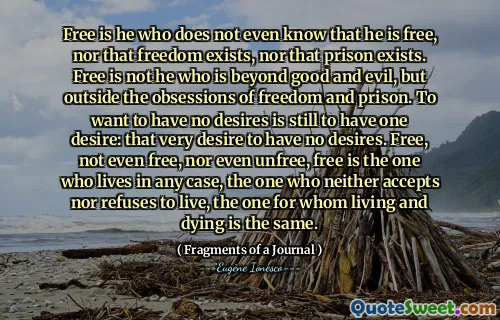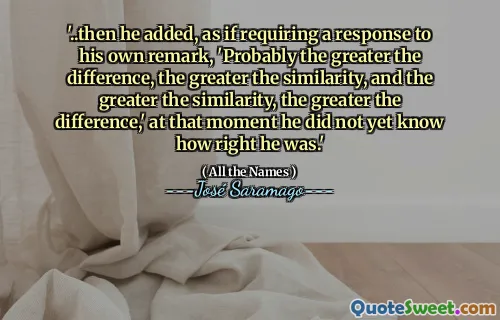I particularly scorn my fondness for paradox. I despise pessimism, narcissism, solipsism, truculence, word-play, and pusillanimity, my chiefer inclinations; loathe self-loathers ergo me; have no pity for self-pity and so am free of that sweet baseness. I doubt I am. Being me's no joke.
In "Lost in the Funhouse," John Barth expresses a deep disdain for his own complex tendencies, particularly his attraction to paradox and pessimism. He critiques various negative traits such as self-pity and narcissism, indicating a strong aversion to self-loathing and other forms of emotional weakness. This reveals his desire for authenticity and freedom from these baser instincts.
Barth's reflection on his identity highlights the struggle of being true to oneself in a world full of contradictions. He acknowledges that his existence is fraught with difficulty, suggesting that the journey of self-discovery is anything but simple. His candid admission invites readers to consider the weight of their own identities and the philosophical battles of the mind.

